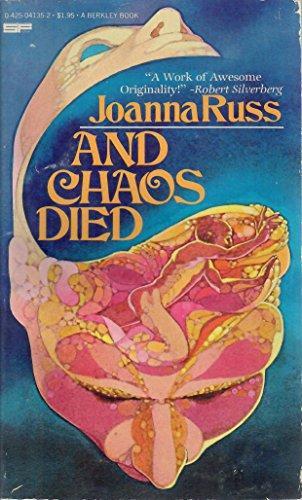Dysmorphia reviewed And Chaos Died by Joanna Russ
Review of 'And Chaos Died' on 'Goodreads'
4 stars
There was a moment in the 70s of experimental science fiction, and And Chaos Died fits into it. It's a strange way for a novel to become dated--there was a time when our science fiction was weirder and more experimental than it is now. The book that comes to mind in terms of a similar experimental style is Witting's Les Guérillères (although that one is even weirder).
And Chaos Died expresses in form as well as content the experiences of a man who crash-lands on a planet of psionic humans and slowly becomes like them. There's a lot of scifi with what I'd call weak psionics where the powers are like parlor tricks, or at best sorcery. Here, the psionic humans have full command over matter and energy. As our close third person character understands and develops these powers, his perception of the world changes dramatically, becoming more and more …
There was a moment in the 70s of experimental science fiction, and And Chaos Died fits into it. It's a strange way for a novel to become dated--there was a time when our science fiction was weirder and more experimental than it is now. The book that comes to mind in terms of a similar experimental style is Witting's Les Guérillères (although that one is even weirder).
And Chaos Died expresses in form as well as content the experiences of a man who crash-lands on a planet of psionic humans and slowly becomes like them. There's a lot of scifi with what I'd call weak psionics where the powers are like parlor tricks, or at best sorcery. Here, the psionic humans have full command over matter and energy. As our close third person character understands and develops these powers, his perception of the world changes dramatically, becoming more and more alien. It's an accomplishment that the novel is not entirely incoherent by the end.
I can't imagine writing this novel, or writing it better, yet I don't think its experiment is entirely successful. It's worth reading and I recommend it, precisely because it tries (even if it doesn't always succeed) to reach so far beyond most SF you'll read.

